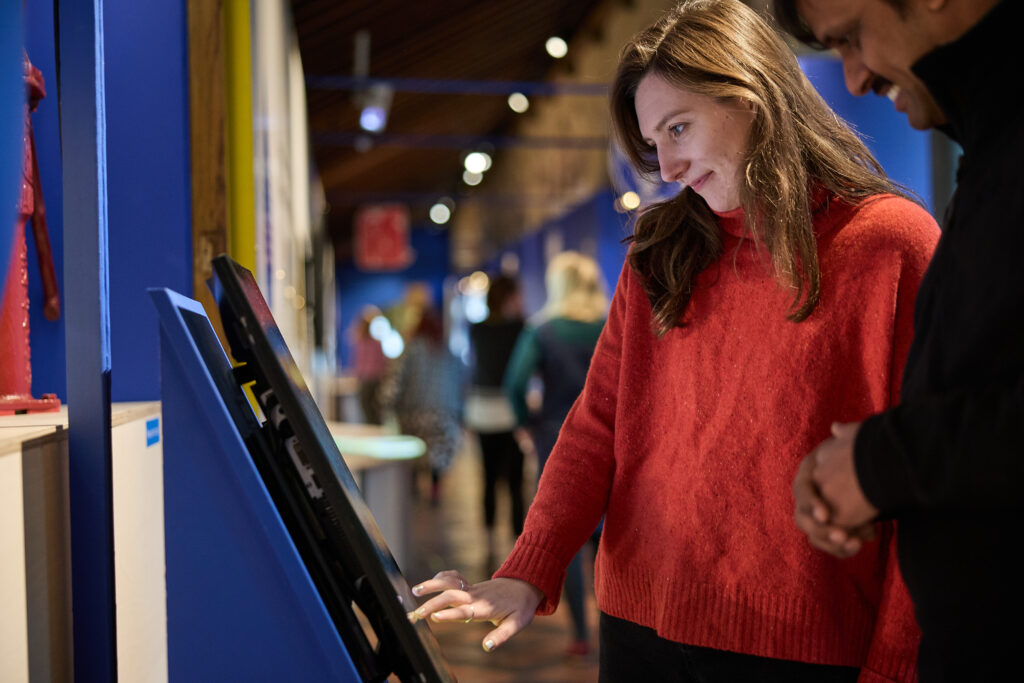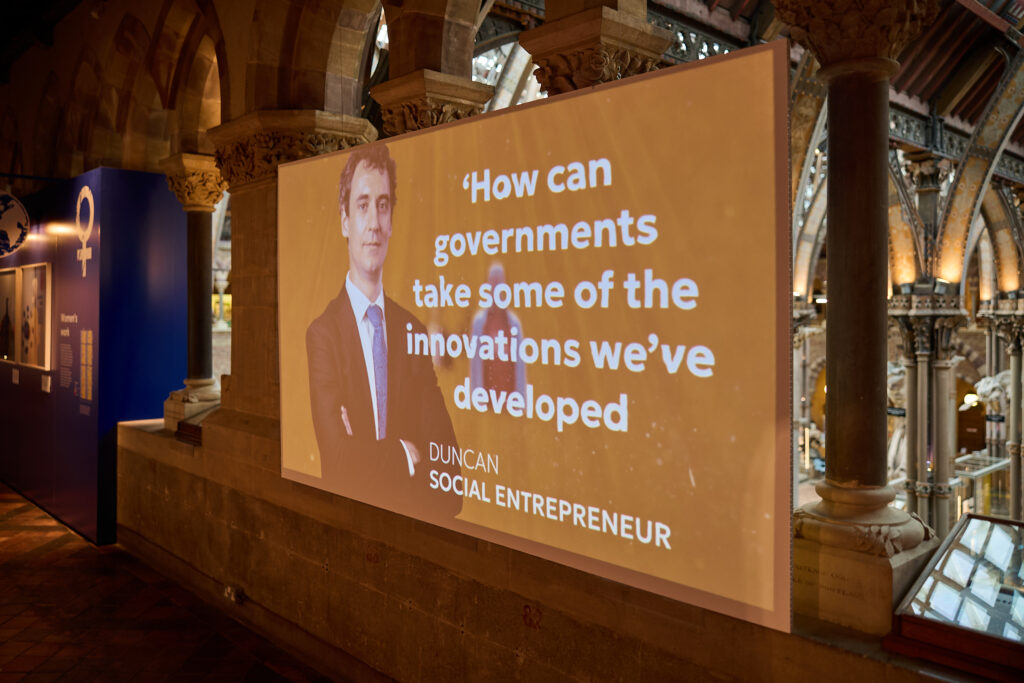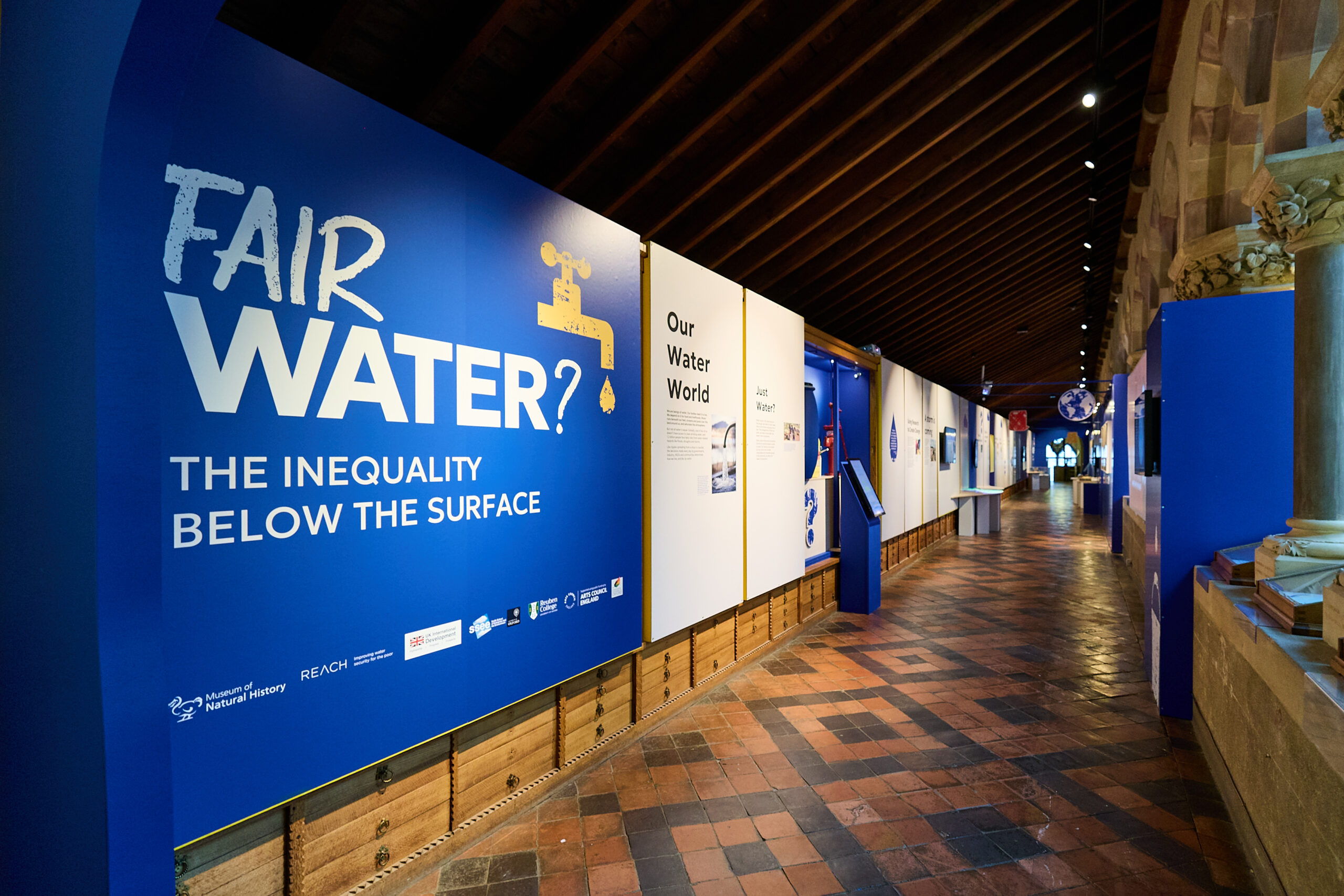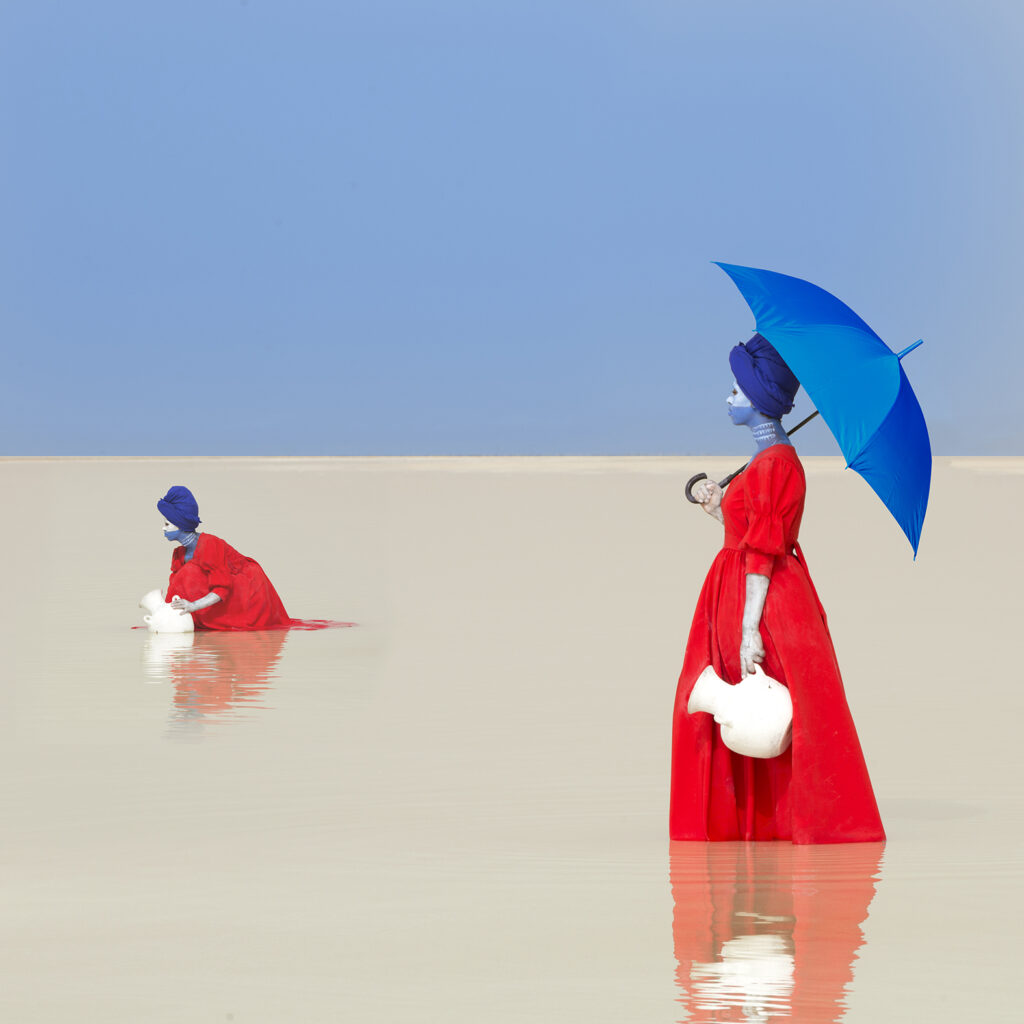Informing and empowering audiences around water security
Professor Katrina Charles and Alice Chautard, University of Oxford
Water underpins every aspect of life. It connects every living being on Earth, supporting health, growth, well-being and access to food and energy. Yet the ‘water crisis’ is often thought of in disconnected ways. For some it evokes water infrastructure; for others, access to water, river pollution, or the ever-increasing frequency and impacts of extreme events, such as droughts and floods. Attempts to engage with the public around the water crisis – through the media, documentaries, or public engagement activities for example – rarely provide a lens wide enough to show how these issues are connected, or detailed enough to convey how they translate into people’s daily lives and what we – as individuals, communities, or countries – can do to address them. If research often fails to provide engaging entry points for the public, the media often leaves people feeling overwhelmed and disempowered. We know that pessimism and hopelessness about the future is growing among young people, and that scepticism and distrust towards scientific experts is on the rise. Our Fair Water? exhibition aims to address these gaps, with a constructive path forward. It reveals what water (in)security means for different people, households and communities, and some of the global barriers to equity. It explores how researchers, community and policy makers are working together to shape a fairer water future through practical, achievable and scalable solutions in Africa and Asia. It highlights parallels with our local water security issues in the UK, using examples of river pollution and proposed dams to encourage visitors to reflect on possible solutions in their own contexts and communities.

Our intent is to leave people feeling excited about the role of research and collaborations to bring about change; informed and concerned about the challenges but not overwhelmed; empowered by possible solutions but not passively hopeful.
Taking visitors on an intellectually and emotionally immersive journey
Fair Water? takes its visitors on an immersive journey along a river, from source to mouth, drawing on REACH’s research in Africa and Asia, and weaving in art, digital installations, and specimens from the museum – different sets of tools that engage different parts of our brains. We know that the human brain privileges experience over analysis. Art, interactive experiences, and visuals, especially those that bring a human dimension, can be incredibly powerful. Used well, these can generate positive emotions, such as hope, responsibility, care and solidarity. Visitors are invited to watch how heavy rainfall near a dam sets into motion a string of decisions that keep populations safe from flooding. An engaging design and hands-on experience will immerse people in the world of water and invite them to relate to the experiences of those who face water insecurity. By following the course of a river, visitors are guided through a broad range of topics from geology to weather prediction and governance, and see the real objects people use to manage their water. Tools like jerrycans and handpumps will control a display about water access, and by turning a water wheel, visitors will be able to match pollutants and their sources. A striking photographic series by renowned Ethiopian photographer and contemporary artist, Aïda Muluneh is a highlight of the display. Currently starring in Tate Modern’s A World in Common exhibition, Muluneh’s series, Water Life, was commissioned by WaterAid and responds to the undeniable impact of life without clean water on women’s lives and futures.
It takes a village: collaboration beyond research
Moving from research to developing an exhibition is a shift that has been made possible by wider collaboration with public engagement specialists and with financial support. The idea for the exhibition was sparked and incubated through Reuben College’s commitment to public engagement with research. Translating nine years of research published in over 100 academic publications would not have been possible without the expertise from the team at the Museum of Natural History – Professor Paul Smith, Dr Janet Stott, Dr Kelly Richards and Ellena Grillo. The exhibition draws on research from the REACH programme across Africa and Asia. We would like to thank all the researchers who have dedicated generous time to share their work and ideas and provide feedback on different elements of the exhibition. We would also like to thank Reuben College, the Smith School of Enterprise and the Environment, the Economic and Social Research Council, and the Arts Council England for their financial support towards the exhibition. The University of Oxford’s Environmental Sustainability fund has provided funding to ensure the exhibition was printed sustainably. Thank you to the Hilton Foundation for supporting the pop-up Fair Water? exhibition (15 September-15 October) and for helping us capture the voices of a wider range of researchers and stakeholders in the process.

What’s next for Fair Water?
The journey does not stop in Oxford. We are in discussion with partners around the world to explore future destinations for the exhibition, where panels can be reprinted, digital content featured on screens and local specimens added to reflect the local context. If you would like to host a Fair Water exhibition or have any suggestions, please get in touch! Finally, check out the programme of events and activities which accompany the exhibition in Oxford in 2024.
Fair Water? Exhibition Programme

